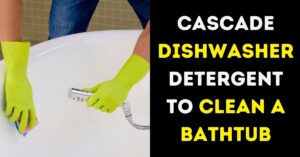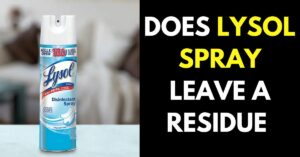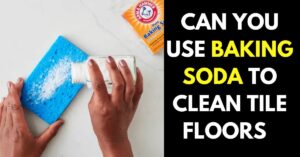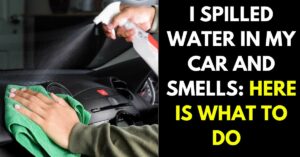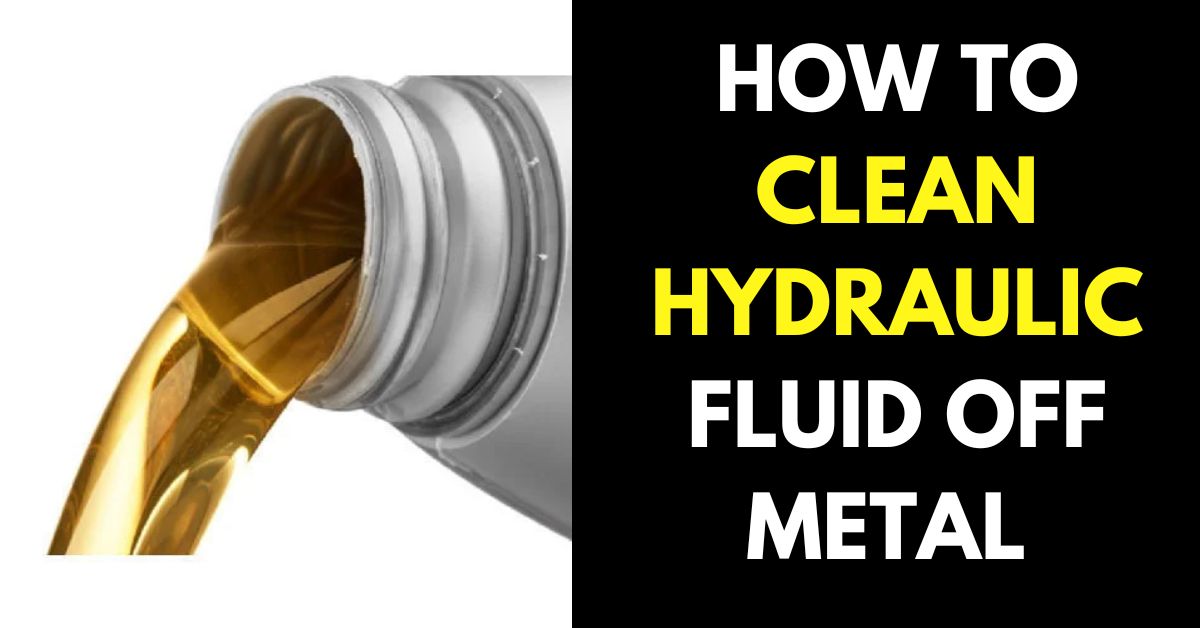
Hydraulic fluid is a vital component in many industrial machines and equipment, but it can also be a challenge to deal with when it spills or leaks onto metal surfaces. If not cleaned properly, hydraulic fluid can cause corrosion, damage the metal’s surface, and even affect the functionality of the equipment. Let’s explore some helpful tips and techniques on how to effectively clean hydraulic fluid off metal surfaces. So let’s get started!
Can You Wash Off Hydraulic Oil?
Yes, hydraulic oil can be washed off surfaces using appropriate cleaning agents and techniques. However, it is important to note that not all surfaces are suitable for washing with water or other cleaning agents, especially electrical components or areas where water ingress can cause damage.
If the hydraulic oil has spilled or leaked onto a metal surface, the first step is to use absorbent materials such as rags or paper towels to soak up as much of the oil as possible.
Once the excess oil has been removed, you can use a degreaser or a cleaning solution specifically designed for hydraulic fluids to clean the remaining oil residue.
What Dissolves Hydraulic Fluid?
Hydraulic fluid is typically a petroleum-based oil, which means it can be dissolved or removed using solvents that are compatible with petroleum-based products. Here are a few common solvents that can dissolve hydraulic fluid:
- Mineral spirits: Mineral spirits, also known as white spirits or paint thinner, is a petroleum-based solvent that can effectively dissolve hydraulic fluid. It is commonly used in the automotive industry to clean engine parts and machinery.
- Brake cleaner: Brake cleaner is a solvent-based spray that is specifically designed to dissolve grease, oil, and other contaminants from brake parts. It can also be used to dissolve hydraulic fluid from metal surfaces.
- Acetone: Acetone is a fast-acting solvent that can dissolve hydraulic fluid quickly. However, it is important to note that acetone can damage certain types of plastics and rubbers, so it should only be used on metal surfaces.
How to Clean Hydraulic Fluid off Metal
Cleaning hydraulic fluid off metal requires some preparation and the use of appropriate cleaning agents and tools. Here are the steps to follow:
- Safety first: Before beginning the cleaning process, ensure that you have the appropriate safety equipment, such as gloves and eye protection, to protect yourself from any potential hazards.
- Absorb excess fluid: Use rags or paper towels to absorb as much of the hydraulic fluid as possible. Be sure to dispose of the used rags properly and follow local regulations for the disposal of hazardous waste.
- Apply cleaning solution: Apply a degreaser or cleaning solution that is specifically designed for hydraulic fluids onto the affected area. Follow the instructions on the cleaning solution carefully and ensure that it is compatible with the metal surface you are cleaning.
- Scrub the surface: Use a stiff-bristled brush or a nylon scrub pad to scrub the surface, working the cleaning solution into the metal. Avoid using abrasive materials, such as steel wool, as they can scratch or damage the metal surface.
- Rinse the surface: Once you have scrubbed the surface, rinse it thoroughly with clean water to remove any remaining cleaning solution and hydraulic fluid residue. Use a hose or a bucket of water to rinse the surface, and ensure that the water is flowing away from any sensitive or electrical components.
- Dry the surface: Once the surface has been rinsed, use a clean, dry towel or cloth to dry it completely. Ensure that the surface is completely dry to prevent any moisture from causing rust or other damage.
Summary
Cleaning hydraulic fluid off metal surfaces requires a bit of preparation and the use of appropriate cleaning agents and tools. It’s essential to use caution and follow the instructions on the cleaning solution carefully to ensure that you don’t damage the metal surface you are cleaning. Remember to always prioritize safety, wear appropriate safety equipment, and dispose of used cleaning materials properly.

